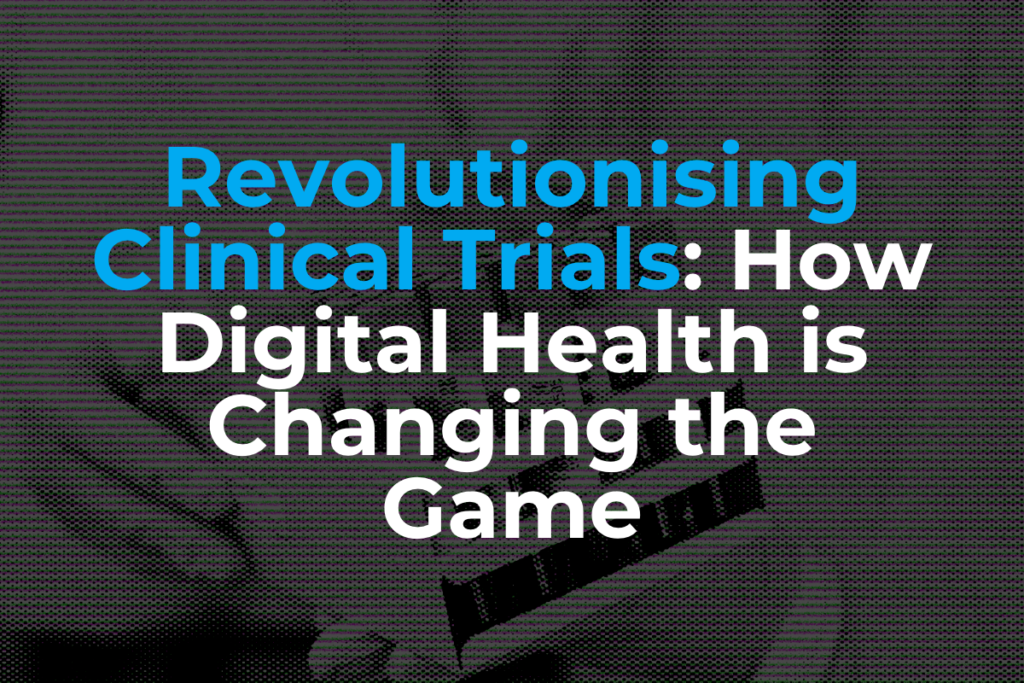
The field of healthcare is rapidly advancing, with the adoption of digital health technologies leading the charge. One area where this is particularly evident is in clinical trials, where digital health is transforming the way we conduct research and bringing about a new era of personalised medicine. In this article, we will explore the impact of digital health on clinical trials and the future it holds.
What is Digital Health?
Before we dive into the topic at hand, let’s first define what we mean by digital health. Digital health is the use of technology to improve health outcomes and healthcare delivery. This can include a wide range of technologies, from mobile apps and wearables to electronic health records and telemedicine. The goal of digital health is to make healthcare more efficient, accessible, and patient-cantered.
Digital Health in Clinical Trials
Clinical trials are an essential component of the drug development process. They are used to test the safety and efficacy of new drugs and medical devices before they can be approved for use by the public. Historically, clinical trials have been a slow and expensive process, with many trials failing to meet their objectives. However, with the advent of digital health technologies, this is starting to change.
One of the most significant ways digital health is impacting clinical trials is by enabling remote monitoring of patients. Traditionally, patients have had to visit a clinical site to participate in a trial, which can be a significant burden, especially for those who live far away. However, with the use of wearables and other digital health tools, patients can now be monitored remotely, reducing the need for in-person visits.
Another way digital health is transforming clinical trials is through the use of big data and analytics. By collecting vast amounts of data on patients, including their medical history, genetics, and lifestyle factors, researchers can gain a more comprehensive understanding of how drugs and medical devices affect different patient populations. This, in turn, can lead to the development of more personalised treatments that are tailored to individual patients’ needs.
The Future of Digital Health in Clinical Trials
Looking ahead, the future of digital health in clinical trials looks bright. With continued advancements in technology, we can expect to see even more innovative solutions that improve the efficiency and effectiveness of clinical trials. Here are just a few of the trends to watch:
- Artificial intelligence: AI is already being used to analyse large datasets and identify patterns that may not be visible to humans. In clinical trials, AI could be used to identify patients who are more likely to respond to a particular treatment, enabling researchers to enrol only those patients in the trial.
- Blockchain: Blockchain technology has the potential to revolutionise clinical trials by providing a secure and transparent way to manage and share data. This could help to reduce fraud and improve the accuracy of trial results.
- Digital therapeutics: Digital therapeutics are software-based treatments that can be used to treat a range of conditions, from depression to chronic pain. In clinical trials, digital therapeutics could be used as a control arm, providing a non-pharmacological alternative to traditional treatments.
In Summary
Digital health is transforming the way we conduct clinical trials, bringing about new possibilities for personalised medicine and improved patient outcomes. With continued advancements in technology, we can expect to see even more innovative solutions that improve the efficiency and effectiveness of clinical trials. As the field of healthtech continues to evolve, it will be exciting to see what the future holds.
SciQ is a specialist HealthTech recruitment company. We are experts in the market and work hard to deliver the best talent for your organisation. To find out more about how we can help, get in touch with us here.



